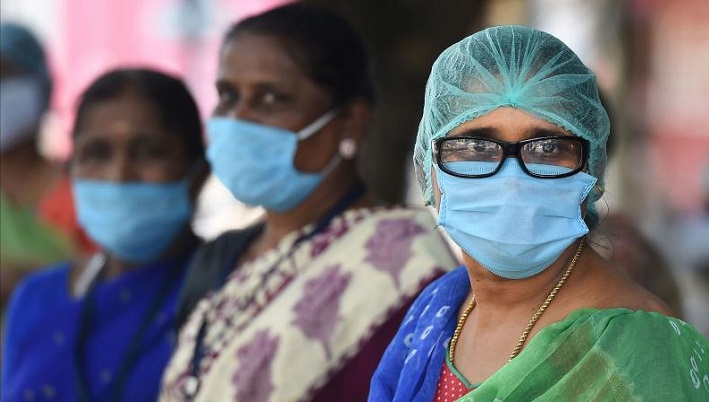
TN officials insist state has enough medical oxygen, but are reluctant to share details
The Federal has been unable to get clear answers from the government on several key questions, including: how many metric tonnes of oxygen are private companies supplying to hospitals? How much has demand for oxygen gone up since the second wave of COVID-19 hit? What is the gap, if any, between demand and supply?

The Centre’s recent directive to Tamil Nadu to divert 45 metric tonnes of liquid oxygen to Andhra Pradesh and Telangana has led to controversy in the state.
The state government has sought to assure people and various stakeholders that there is no shortage of oxygen in Tamil Nadu.
However, despite several efforts, The Federal has been unable to get clear answers from the government on several key questions, including: how many metric tonnes of oxygen are private companies supplying to hospitals? How much has the demand for oxygen gone up since the second wave of COVID-19 hit? What is the gap, if any, between demand and supply?
Health department officials say that a committee calculates the expected demand of oxygen in the state but they and private oxygen suppliers are unwilling to give any more details.
The Federal contacted DC Pandey, nodal officer of the Petroleum and Explosives Safety Organisation (PESO), the agency for regulating the safety of hazardous substances such as explosives, compressed gases and petroleum.
Pandey directed us to contact the Department for Promotion of Industries and Internal Trade. The nodal officer appointed by the All India Industrial Gases Manufacturers Association was not available for comment. Officials of INOX Air Products Limited, which supplies oxygen to the state, were also reluctant to share the data.
According to Health Minister C Vijayabaskar, the state is consuming 240 metric tonnes of oxygen daily, and has the capacity to manufacture 400 and store 1,200.
Also read: Tamil Nadu reports highest wastage of COVID vaccines, says RTI reply
“There is no clear-cut data on what’s going on,” says Dr GR Ravindranath, general secretary, Doctors’ Association for Social Equality.
“We don’t know what the demand is and how much is being procured. The minister claims that there is sufficient oxygen. We have to look at the claim from our past learnings. Last year, he said that there are sufficient PPE but the reality was different.”
Tamil Nadu currently has more than 1 lakh active COVID-19 cases and the numbers continue to climb, which will likely lead to a rise in demand for liquid oxygen.
Officials said the state received 4,880 metric tonnes of oxygen from the Centre. On April 25, it will get 5,619 metric tonnes and on April 30, 6,593 metric tonnes.
The situation next door
Compare, however, the situation in Tamil Nadu with that in Kerala, where officials are a lot more transparent.
Kerala’s plants can produce up to 199 metric tonnes of medical oxygen per day. Most of this comes from Palakkad, Kanjikode-based INOX Air Products.
“INOX produces 149 metric tonnes a day,” says Dr R Venugopal, deputy chief controller of explosives of the aforementioned Petroleum and Explosives Safety Organisation, and nodal officer for oxygen supply for Kerala and Lakshadweep. “They supply oxygen to Karnataka and Tamil Nadu.”
Also read: Tamil Nadu bagged highest allocation for COVID-19 battle
According to Venugopal, Kerala’s average consumption of oxygen is 89.75 metric tonnes a day. The state currently has 501 metric tonnes in stock, he says.
INOX was supplying 40 per cent of the oxygen to industries before the pandemic hit, but it has stopped doing so in view of the pandemic.
Kerala is not reliant on only one company for all its needs. There are other state and private firms that produce medical oxygen – Praxair India Private Limited and Kerala Metals and Minerals, for example.
Private Initiative
Recently, some companies have come forward to offer the Tamil Nadu government their services for free. Sterlite, for example, has said that if it is allowed to reopen its plant in Thoothukudi, it can provide oxygen to the state. The copper smelting plant was ordered to close in 2018 for violating environment rules and regulations.
However, the proposal has come under fire from environmentalists.
“Many other small industries are capable of producing oxygen,” says G Sundarrajan, an environmental activist. “The government can ask them instead of allowing Sterlite to reopen its plant.”
(With inputs from Shahina KK)


